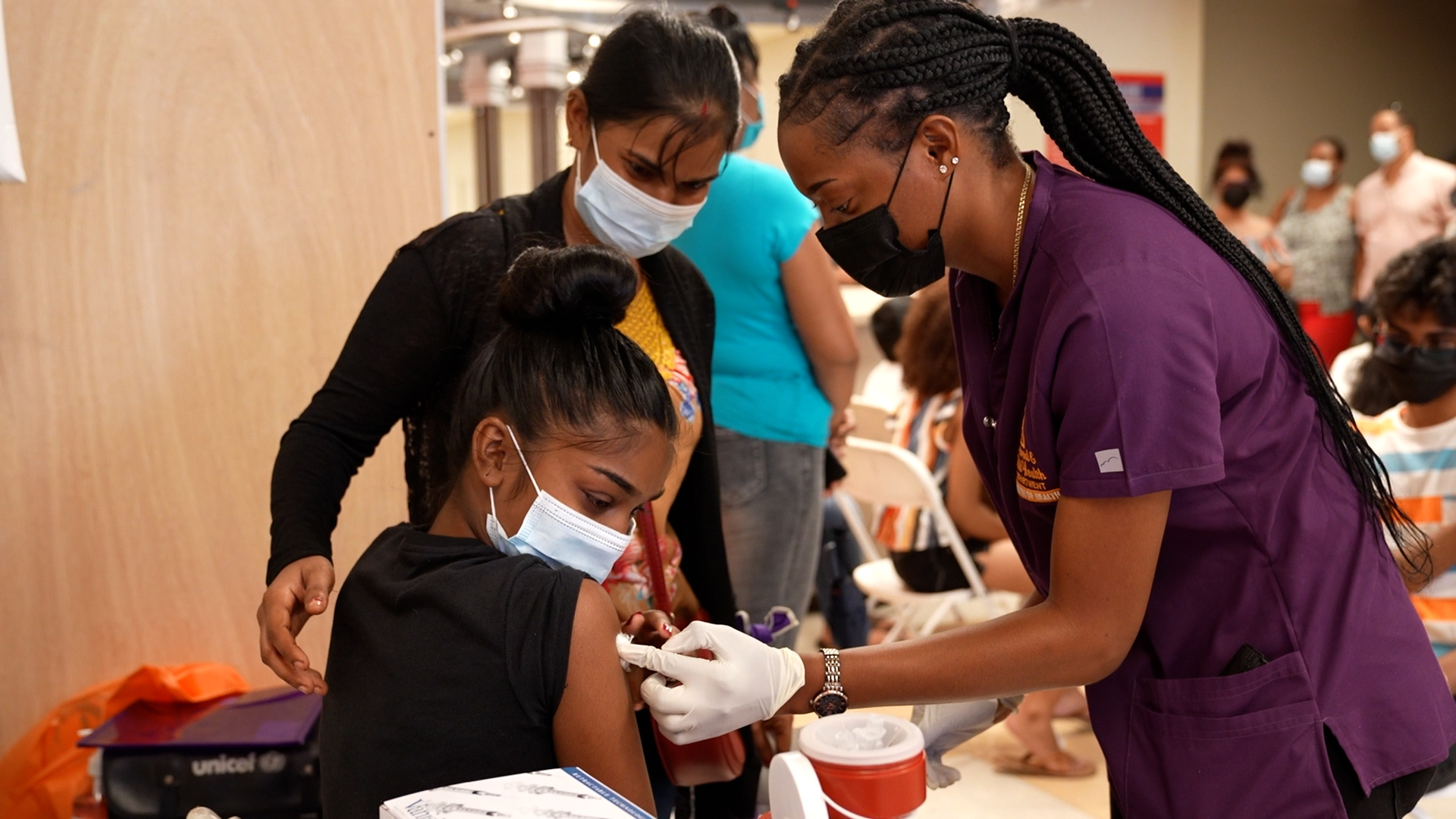By Vishani Ragobeer
The Minister of Health Dr. Frank Anthony says it is safe for children to return to schools next month, noting that they are not generally affected by the more severe symptoms of COVID-19.
Dr. Anthony, during a recent interview with the News Room, stated that based on the data collected in Guyana, children were more likely to experience milder symptoms of COVID-19 or no symptoms at all.
Though some children have died after they were infected with the virus, Dr. Anthony said that those children were sick with other underlying diseases (comorbidities) or had other health complications.
Since the start of the pandemic here, more than 7,800 children have been infected and at least 17 have died. Overall, there have been more than 63,000 cases and a total of 1,224 deaths.
“I think for children, generally, it’s much safer but again, we still have to exercise caution and we still want to reduce the spread,” the Health Minister said.
Earlier this month, Minister of Education Priya Manickchand said that schools, at every level, may fully reopen after the Easter break. On Sunday, President Dr. Irfaan Ali told the News Room that he will be announcing the full reopening of the country after two years of various restrictions to curtail the spread of COVID-19.
Even as the country prepares for what seems to be a return to normal activities, Dr. Anthony acknowledged that some health concerns remain.

While children may become infected, albeit without experiencing severe symptoms, he said that children can spread that infection to adults in their households. And those adults, particularly if unvaccinated or with comorbidities, may be at-risk.
“That’s something we have to be mindful of but again, I think it would be safe for children to go back to school once we keep some of the measures in place,” the Health Minister said.
Children’s vaccination, too, remains a concern. For teenagers (12 to 17 years old), Dr. Anthony lamented that uptake has been less-than-expected despite the availability of the jabs.
Less than half of the targeted teenage population have received at least one dose of the Pfizer COVID-19 vaccine. Dr. Anthony said that more parents need to encourage their children to get vaccinated; parents are also required to grant their consent for teenage vaccination.
While there has already been a phased return to schools, children younger than 12 have not been attending physical classes fully over concerns that the life-saving COVID-19 jabs are not yet available for their use.
Months ago, the government started seeking the special COVID-19 vaccines for children aged five to 11 years old. To date, those efforts remain unsuccessful- though the Health Minister said negotiations continue.
Even so, he maintained that it is safe for children to return to schools, emphasising that the Education and Health Ministeries will be tasked with ensuring that key safety guidelines are adhered to. These guidelines include mask-wearing and constant sanitisation.
Based on reports globally, the COVID-19 pandemic and the protracted closure of schools has resulted in learning losses. A recent World Bank report stated that the lower-than-optimal levels of educational engagement suggest “severe learning losses and an increase in drop-out rates.”
In Guyana, about 1,300 pupils from all across Guyana were absent from a mock examination held recently for Grade Six pupils preparing for the National Grade Six Assessment (NGSA), later this year.
Manickchand believes that hundreds more, from all other levels, may be absent from schools Because of the stark reports and Guyana’s experience, many emphasised that children should return to schools.
“We are pretty sure that we’re not going to be able to defy the predictions that children will stay home after two years of closure as a result of which, we will have to have a sustained long term approach to recovering our children to make sure that we don’t lose them to the dropout syndrome,” Manickchand told the News Room recently.






